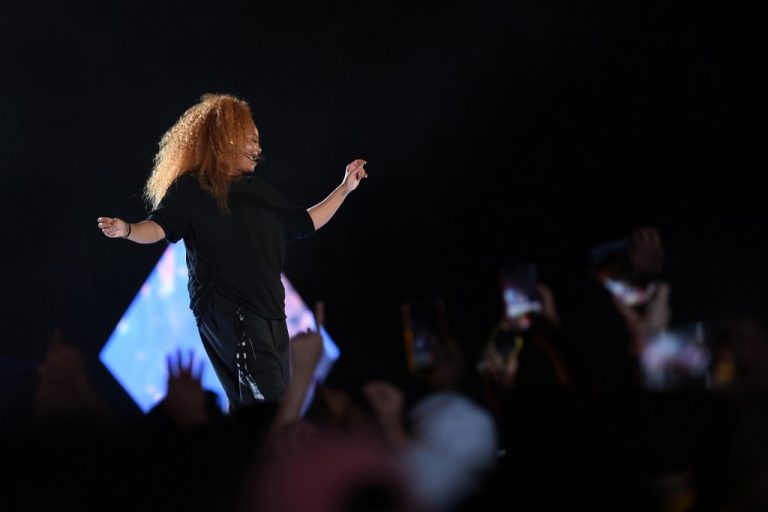Janet Jackson, 50 Cent and Chris Brown were among artists who performed Thursday at a concert in Saudi Arabia that rapper Nicki Minaj pulled out of citing human rights concerns.
A cheering crowd danced to the thumping music at Jeddah World Fest, hosted in the Red Sea city of western Saudi Arabia.
Such scenes, unimaginable just two years ago, reflect how the ultra-conservative Islamic kingdom is easing decades-old restrictions on entertainment.
Minaj — well-known for her provocative, profanity-laced lyrics and skin-baring music videos — pulled out of headlining the concert in a show of solidarity for women’s and gay rights in the ultra-conservative Islamic kingdom.
The cancellation triggered a social media storm, with many fans in the kingdom voicing disappointment and demanding ticket refunds.
The singer insisted on Twitter that her decision was not intended to “disrespect” the Saudi government.
The announcement of her performance had prompted an online backlash from arch-conservatives as the kingdom pursues a contentious liberalisation drive.
Citing unnamed sources, a few Saudi media outlets including the pro-government Okaz newspaper insisted it was the kingdom that cancelled her show, as it went against local “customs and values”.
The country has faced intense international scrutiny over its human rights record since last year’s killing of Saudi journalist Jamal Khashoggi in Istanbul and the ongoing trial of women activists.
The Human Rights Foundation has urged artists not to perform in the kingdom.
“It’s clear that, after losing Nicki Minaj on the basis of the Saudi regime’s atrocious human rights record and their treatment of women and the gay community, Crown Prince (Mohammed bin Salman) has chosen to spend whatever it takes to give the appearance that things are normal and that this is just another concert,” HRF president Thor Halvorssen said in a statement.
“Except it isn’t.”
Saudi Arabia is boosting entertainment for its citizens to have fun, in what some see as an attempt to blunt public frustration over an economic downturn and high youth unemployment.
The country’s General Entertainment Authority said it plans to pump $64 billion into the sector in the coming decade.
But some acts have fuelled anger in a country still steeped in conservatism.

